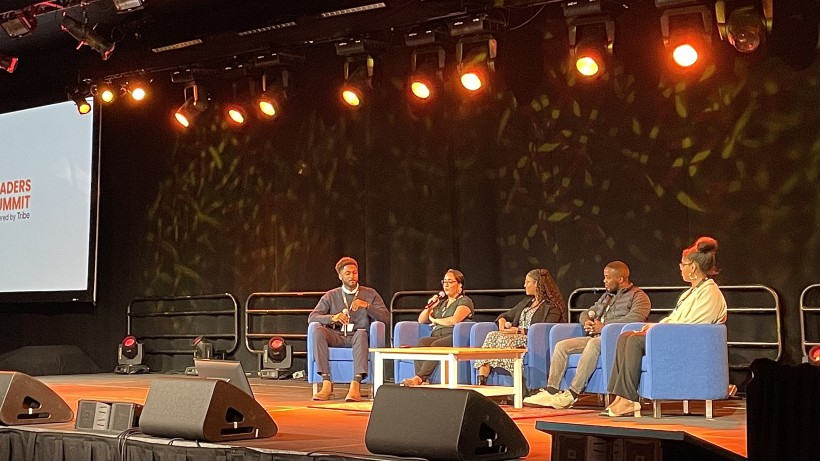Tribe Network, the Halifax-based startup support organization for BIPOC entrepreneurs, grew to include 930 members during its first year of public-facing activity, as well as distributing more than $500,000 of grants and program funding to other organizations.
Chief Executive Alfred Burgesson told the Tribe Leaders Summit on Wednesday that his team is finding traction within both the innovation ecosystem and BIPOC communities and is now focused on laying the groundwork for future growth.
“I think for Tribe right now, we are in this place where we have traction,” said Burgesson. “In order for us to break through, what we’re focused on is the systems — ensuring that our internal systems are strong, and ensuring that the systems we put in place for our founders, our members externally, are also strong efficient, reliable and relevant.”
Also at the Leaders Summit, Burgesson revealed a new Tribe logo from graphic designer Lizane Tan, although the organization has not yet released the logo on its website or social media channels.
Tribe’s original logo is an Adinkra symbol, which is a traditional Ghanaian emblem used in applications like pottery. It signifies both immortality and omnipotence.
Burgesson said the new logo is intended to highlight the group’s community-focused approach to business.
“This is a symbol that will resonate with a lot of Africans … but I’ve realized that this is not a symbol everyone can see themselves in within the network,” he said. “We are, after all, serving racialized and Indigenous entrepreneurs, so it’s probably inappropriate to have an African symbol as the representation of our brand.”
The summit included a panel discussion featuring speakers that include Woveo co-founder Jonah Chininga, whose fintech startup raised a $1.5 million round of pre-seed funding last year. Now based out of Calgary, the company originated on Prince Edward Island and previously did business under the name MIQ. It lets users pool their resources to obtain loans as a collective, building their credit histories.
Tribe, meanwhile, was founded two years ago, but has only been offering public-facing programming since about this time last year. Its programming falls into three main streams: its Start Small Grant, which offers founders up to $5,000 and has so far helped more than 80 entrepreneurs; its Idea Fellowship, which provides mentorship and coaching; and its Black Startup Project accelerator.
In total, Tribe has distributed about $400,000 of funding for other programs and more than $100,000 to founders directly. And in June, Burgesson said the organization was raising a $20 million venture capital fund to back racialized founders.
From the perspective of Tribe’s members, meanwhile, the organization offers an alternative to mainstream financial and innovation economy institutions. In a survey by Tribe of its membership, 53 percent of respondents said they trusted black-led business organizations to protect the interests of their communities in 53 percent of cases, compared to 39 percent for the federal government and just 20 percent for their local chamber of commerce.
“When we asked entrepreneurs to what extent their race has an impact … 76 percent of them said their race makes it harder to succeed,” said Burgesson. “That is the lived experience of entrepreneurs responding to our survey — that their race makes it harder for them to succeed.”










